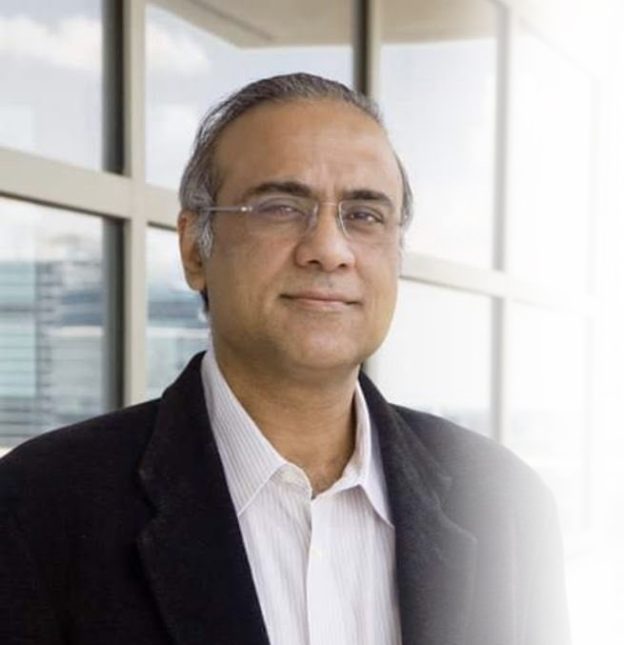The world is witnessing two big changes, one is caused by climate change, and the other is a result of newer technologies. Jafri Associates has surely a reason to dwell upon these changes for over half a century of its life as a reputable company in Pakistan. Engr. Tanveer Jafri, leading the company after his father Engr. Syed Sibte Ahmed Jafri has plenty to talk about the said changes on our globe.
ER: How has climate change and eventual rising temperatures affected the thought process and design of the buildings in the world especially in Pakistan?
TJ: During its lifespan of half a century after its foundation by my father, Jafri Associates has worked in Europe and the US. This work is focused on the design of green buildings. This makes us a bit advanced in comparison to others in Pakistan. Normally, the lead design goes to minimize waste and is carbon neutral but now the fundamental change in building design emerging is load elimination. In other words, it is about bringing to an end the external electricity requirement of the building. It means a minimum possible dependence on the grid. It means it is time to go in the past and incorporate that technology in the design. Thus, the thermal load for HVAC turns minimal. In normal buildings, the dependence is on thermal load for maintaining the environment of the building, and in return, it pollutes the environment of the globe. Now natural resources are being tipped for incorporation into the buildings. To achieve this, engineers have to share techniques with the architects for incorporation into the buildings.
For instance, areas like Shahrah e Faisal of Karachi are so densely populated that there is no room to incorporate such techniques in the buildings. However, in New York, they have used a geothermal system and dug deep down to get water for chillers. Geothermal cooling and heating are also pos-
sible in Pakistan and also use renewable energy to make buildings and even homes carbon neutral.
The issue with solar and wind is how to get rid of scraps after the expiry of the equipment. We still have time to learn even if we install 10 thousand megawatts of solar and 50 thousand megawatts of wind then how we will deal with their scrap.
We have recently offered our two clients to eliminate 30 percent load of the buildings. Had I got more space I would have turned much of the HVAC off the grid. We have to be futuristic after all otherwise we will lag behind in the market.
We must know cooling system technologies are available and they can provide you steam. In Palestine, 90 percent of houses have solar hot water. This system did not succeed in Pakistan because the consultants did not design it. It was a make-shift solution offered by retailers and was doomed to fail. This is something that only consultants can do.
ER: How can we convince the industry to opt for the solutions that you are talking about? How can we amend the systems of the buildings that are already constructed in congested areas?
TJ: There are two important steps to be taken. One, the government should not permit split or window AC in any building more than four stories. Why? Because it increases the load and also increases fire hazard in the building. Two, the buildings in areas like I.I. Chundrigar Road of Karachi should be given a centralized HVAC system by acquiring land at the City Station Karachi. This should be done immediately as it will reduce energy consumption. In all big cities’ downtown areas, such centralised district systems are functioning. It reduces the energy consumption of the building by 40 to 60 percent.
ER: Do you see any collective effort to convince governments, developers, and the industry?
TJ: I must say every government tries to improve things, their departments do not start anything to do anything wrong. The issue is, the advisory channels fail to provide correct advice to them. There is a lack of true advisors in Pakistan and it is caused by the chain of education and jobs and thus the knowledge is blocked.
ER: You talked about knowledge, which is seen in the backdrop of AI and ChatGPT. How is it affecting consulting companies?
TJ: The core engineering including building design will be converted to AI within the next decade. We will put the data and will get the required complete design and other requirements. But the consultants who would not use AI and offer out-of-the-box solutions will beat AI-based output. Even if the industry or any individual uses Chatbot to design its building and hand it over to the contractor, they have to revert to a consultant when the building will start confronting issues. Suppose, even if we get everything from AI, understanding it and the execution will always remain with the engineer who after all has to educate in an engineering university where teachers are to educate undergraduates. AI is no doubt important. Jafri Associates is using it smartly and we need our intelligence to benefit from AI Technology which has to be adopted for increasing productivity.
Geothermal cooling, heating being tipped off to brave climate change in Pakistan
on 20/06/2023








